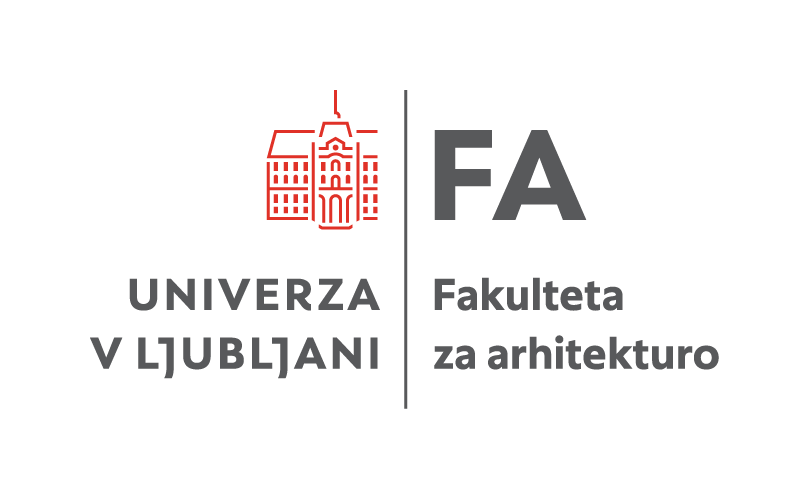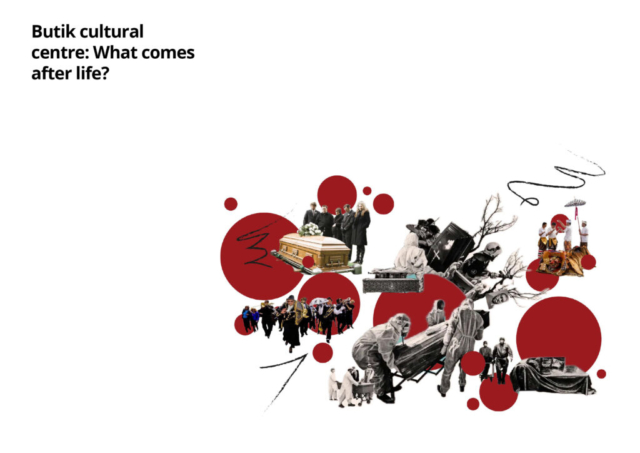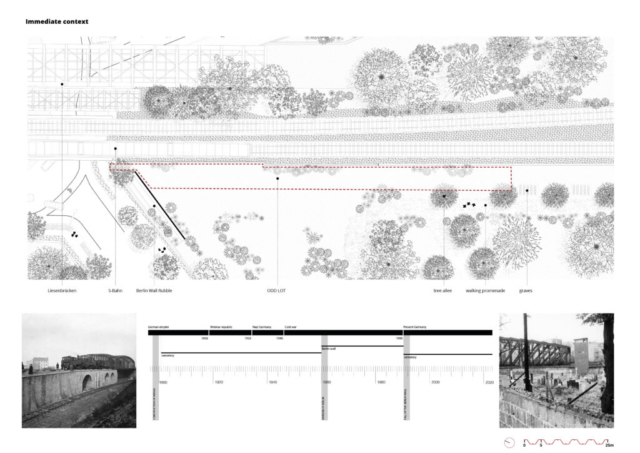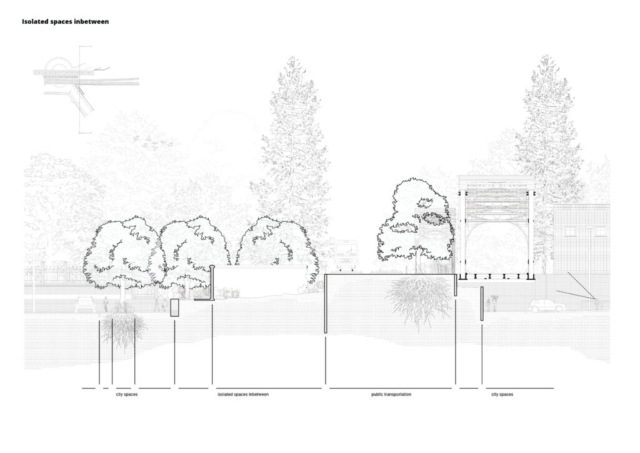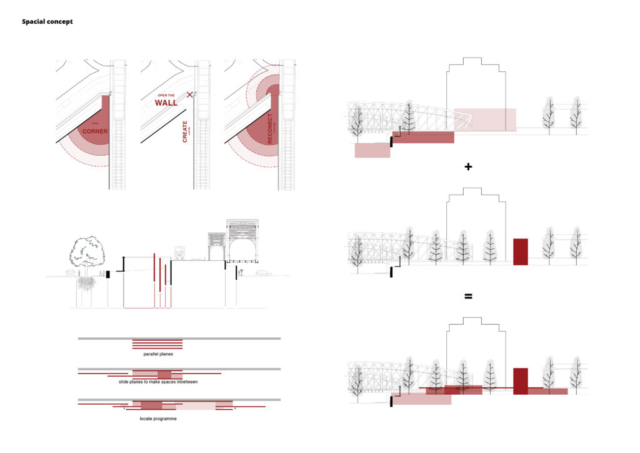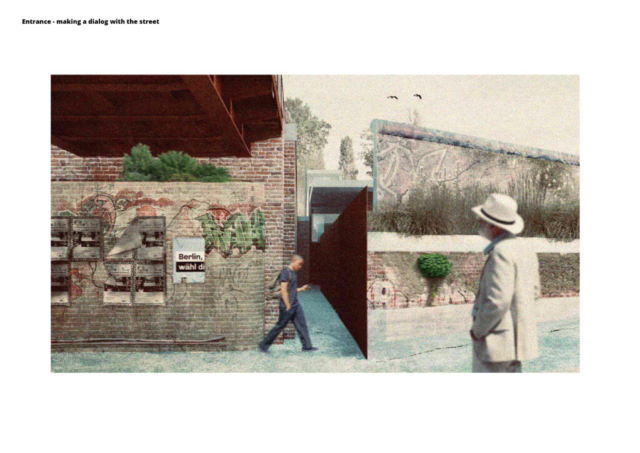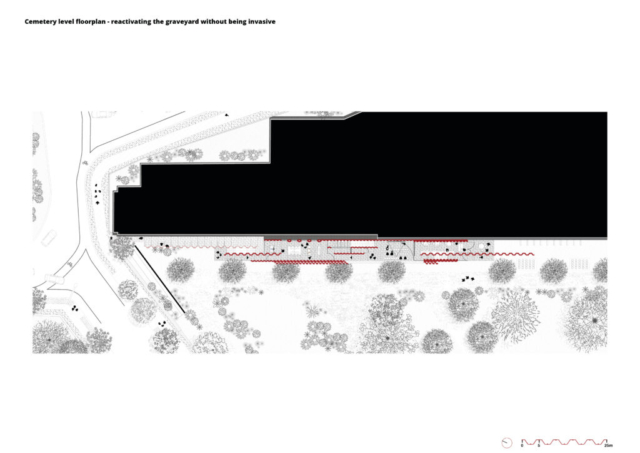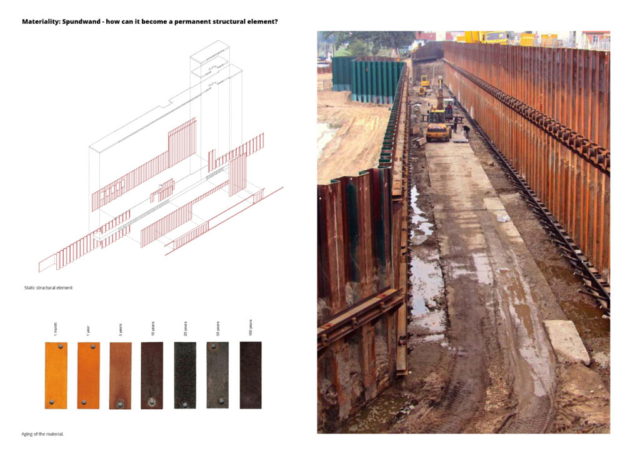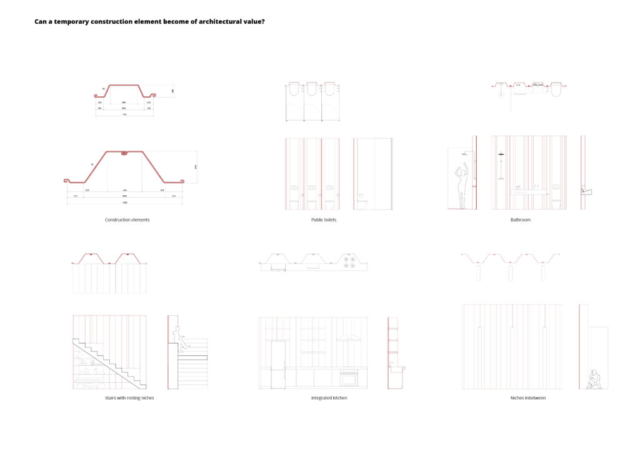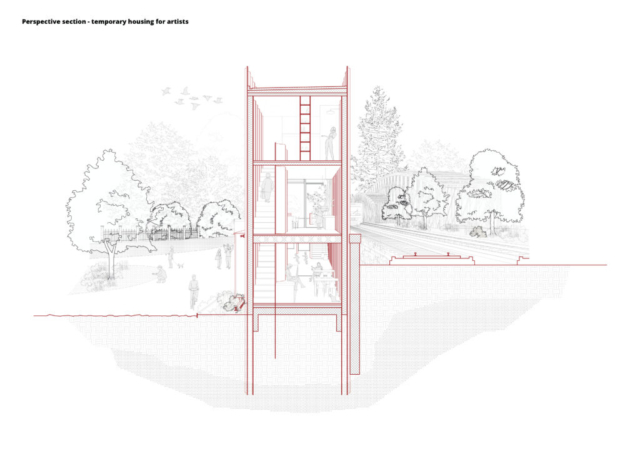Butik Cultural Centre: What comes after life?
The odd lot is located at the edge of Berlin Mitte. The “ODDNESS” of this lot does not come from its shape, but it can be attributed to its historic and spacial complexity. It is situated along the U-Bahn railway, next to huge steel bridges, on a graveyard and in-between the limits of the previous Berlin wall death zone. Due to its history and its complex topography, the site has been cut away from the rest of the city up to the present day. Today, the tangible traces of each historical event remain visible, and the weathered patina of time has evolved into a crucial aspect of the site’s aesthetic. By excavating and exposing historical layers, we aim to re-establish the connection of the site with the city. Consequentially, the structure’s shape and materiality directly reflect the site’s essence, growing from the ground up and respecting the existing robust characteristics. This concept not only seeks to integrate with the past but also anticipates the future, ensuring the building evolves and develops over time, reaching a timeless quality that only adds to the narrative of the area. Therefore, the intervention strives to leave a minimal footprint by creating two smaller, well-defined spaces that can extend their programmatic reach beyond their boundaries. Reactivating the area by creating an interactive landscape between the cultural centre and everyday passersby, managing to re-evaluate the significance of a previously forgotten part of the city.
About the experience
The city’s vibrant academic and cultural atmosphere makes it an excellent destination for students. The university I attended offered a well-structured and engaging study program. I particularly appreciated how motivated and committed the students were, which greatly enhanced the quality of group projects and collaborative learning. Additionally, the university provided excellent facilities, such as the TVFA Halle, which offered a conducive environment for both individual and group work. Finding accommodation close to the university is manageable, especially if you start early. There are accessible and comfortable student dormitories within a 15-minute walking distance of campus, but I recommend beginning your search in the summer to secure a good spot. Apart from its classical culture, Vienna also boasts a thriving alternative scene. Places like Arena, a vibrant cultural hub with live music and open-air events, and Zukunftshof, which unites art, sustainability, and community projects, showcase the city’s creative spirit. From concerts and theater productions to underground events and exhibitions, Vienna offers countless opportunities to immerse yourself in its rich and multifaceted heritage. Living in Vienna also means experiencing the perfect blend of historic charm and modern convenience. The city’s excellent public transport system makes it easy to explore its neighborhoods, parks, and landmarks. My semester in Vienna wasn’t just about academics—it was a chance to grow personally and culturally in one of Europe’s most dynamic cities. I highly recommend it to anyone considering studying abroad.
